Ronit Plank Interview
The Indie Book Butler Interview.
Indie Book Butler: Today we are joined by Ronit Plank, author of When She Comes Back. Welcome to the Book Butler, Ronit.
Ronit Plank: Thank you very much for having me!
IBB: For any of our readers that have not come across your work previously, can you take a moment to tell us all a little about yourself?
RP: I’m a former actor who worked in NY and LA and took up writing when my second child was about 2 years old. I started in short stories and then when I got my Masters in Fine Arts, I switched to memoir. I’ve published both short stories, articles, and essays, and When She Comes Back is my first book. My second book Home Is A Made Up Place, a collection of short stories, will be out Spring of 2022.
IBB: What made you decide to write the story of your childhood?
RP: I think that goes back to the short stories I started with which had echoes of what I experienced growing up. There was loss and giving up one’s power and people searching for whatever it was that would make them feel different from themselves. About two years after I began writing short stories I switched to essays about losing my mother and growing up waiting for her return and then I realized, with the help of my thesis advisor at grad school, that this was in fact a book.
IBB: What can a reader expect when they pick up a copy?
RP: A reader can expect a coming-of-age story, a story about giving up one’s power, a family trying to find its way, and what growing up is like when the person your world revolves around can’t stay. I’ve also included some background on Bhagwan Shree Rajneesh, the guru my mother followed who was at the center of Netflix’s docuseries Wild Wild Country.
IBB: Were there any sections of the story that you found particularly difficult to write?
RP: I found writing about my evolving relationship with my father during adolescence tricky because I’d never expressed those feelings publicly before.
IBB: How much understanding did you have of the events that were going on?
RP: As I got older I understood more and had concrete facts about my family’s situation, but I’d been an observant, perceptive kid. Even at the age of 5 I felt the tension between my parents, my mother’s preoccupation, and was wary of the strangers we encountered when she took us to mediations and parties.
IBB: How did the events that transpired change you as a person?
RP: I think as a small kid growing up on a kibbutz (a collective community) in Israel, I felt safe, very taken care of and I grew confident. What unfolded over the rest of my childhood after we came to the States created a lot of uncertainty within me about myself. It also made relationships difficult because my emotional compass was kind of broken and I wasn’t comfortable being vulnerable. It took me a long time to dismantle those patterns and trust that who I was growing up had little to do with how my parents behaved.
IBB: Did you write your memoir with the intention of it being a standalone book, or do you have plans to further tell your story?
RP: I think it is a standalone book, but I’ve considered there may be an opportunity to write a memoir about my adult years: becoming a mother myself, how I learned to relax in my relationships, and the ways in which my mother and I have grown closer as the years pass.
IBB: What are you hoping to achieve with the book?
RP: I wanted to tell my story and my family’s story, and I also wanted to help shed light on the impact parents’ disinterest or leaving can have on children. So many people go through adulthood struggling to feel okay, to trust themselves, to have good relationships because of what they experienced growing up. I hope that reading my book will help others feel less alone, inspire parents to communicate and tune in to their children, and most of all, let people know that it’s never too late to change the way you live or behave; you can have healthy and beautiful relationships even after childhood trauma or loss.
IBB: What would you say makes a great writer?
RP: Practice, practice, practice. Also empathy and being observant and open. You need all of those whether you’re writing fiction or memoir to create work that feels immediate and shines a light on the way people live. And of course, tenacity goes a long way because when you are determined you keep at writing scene, dialogue, plot, description, etc. until you have what you want on the page. And you need that same tenacity to send your writing into the world again and again until you find a home for it.
IBB: What are your perfect writing conditions, and how often do you write?
RP: I wish I could say I am consistent but these days with Zoom school and the book launch it’s more feast or famine. Ideally, I like to write when no one else is home and the place is quiet. When I have a 3-hour stretch in front of me to concentrate without interruption. And I love coffee, candles, an overcast day, some dogs nearby, all those writerly things.
IBB: Can you put your finger on the moment where you decided that you wanted to publish your work?
RP: I think I always intend to publish or try to get what I write published. I used to write in a journal a long time ago but these days I write to share it with others.
IBB: Why do you think it is that you have found yourself writing in the style that you do?
RP: Once I began reading lots of memoirs I knew this current book needed to be a memoir. But I’m currently working on two other projects that aren’t memoirs and am having fun with them.
IBB: What would you say, if anything, best differentiates you from other authors?
RP: There are so many authors, so many interesting books. I’d say that, especially as it pertains to memoir, I’m the only one who can tell my story this way, with my perceptions and interpretations. But that is the case for all writing. You are the only one who thinks and expresses the way you do and that is why there’s room at the table for all of us.
IBB: What is next on the publishing horizon for yourself?
RP: I’ve got the short story collection Home Is A Made-Up Place out next spring and I’m midway through writing YA novel and I’m also working on a proposal for a new book of nonfiction featuring interviews, history, and personal anecdotes.
IBB: Was the Indie-Published route always your preferred route for your work?
RP: I wasn’t sure which way I’d end up going. I have been so happy working with Diane Windsor at Motina Books. She’s a great publisher!
IBB: Has the experience so far been all that you thought it would be?
RP: Yes, my publisher and I have collaborated well together since the beginning. We agree on a lot and we had meetings throughout this process to stay in touch and make sure we were on the same page. Plus, she helped me create a strong Advanced Reader Team who she guided along the way to get my book on its path to release. I couldn’t be happier with my indie press experience.
IBB: If you could give one piece of advice for someone looking to get into writing, what would it be?
RP: I’d say if you’re feeling the pull, then start writing, and do your best to ignore any internal critical or judgmental voice that tries to convince you to stop. Keep going.
IBB: Before we bring this interview to a close, it is your chance to name-drop. Anyone who you feel is deserving of more recognition at present or someone whose writing you have recently enjoyed? Now is your chance to spread the word…
RP: I just love the author Miriam Toews, especially her books All My Puny Sorrows and Women Talking. I’m also reading Gina Frangello’s new book Blow Your House Down which is a tour de force.
IBB: Thank you for joining us today, Ronit, and all the best for the future.
RP: Thank you so much for these excellent questions and for having this conversation with me!
IBB: For more information on Ronit and her work, please do visit:







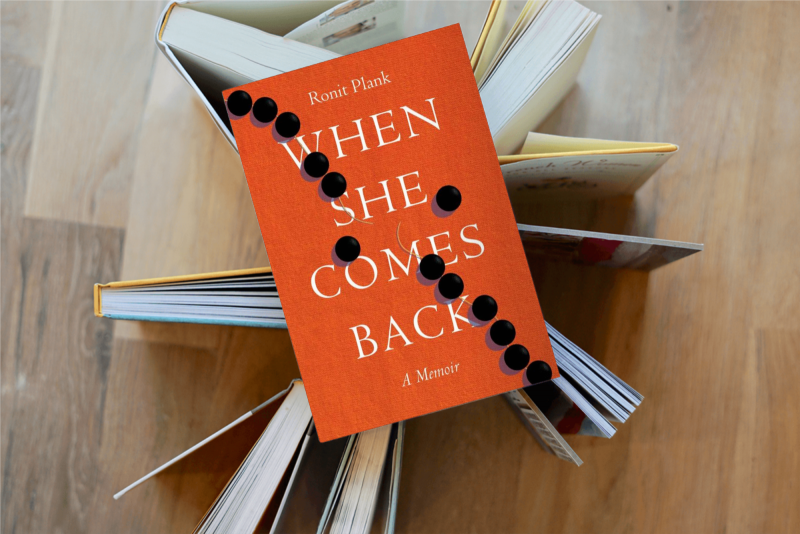

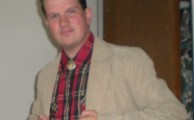


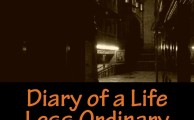
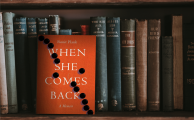

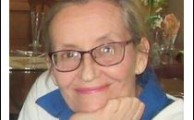



Leave a Reply
You must be logged in to post a comment.